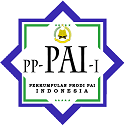Experiential Learning pada Kisah Nabi Musa dan Nabi Khidr dalam Q.S Al-Kahfi Ayat 62-82
Abstract
Keywords
Full Text:
65-77References
Al-Hidabi, D. A. Y. (2020). Curriculum Integration based on the Story of Prophet Musa and the Righteous Man in Chapter al-Kahf (Integrasi Kurikulum Berdasarkan kisah Nabi Musa A.S dan Seorang Pemuda Soleh (al-Khidr) di dalam Chapter Al-Kahf). Journal of Islam in Asia (E-ISSN 2289-8077), 17(4 SE-English Articles), 184–202. https://doi.org/10.31436/jia.v17i4.958
Al-Sheikh, A. bin M. bin A. bin I. (2003). Tafsir Ibnu Katsir Jilid 5 (Terjemahan) (5th ed.). Pustaka Imam asy-Syafi’i.
Amrullah, A. M. K. (1990). Tafsir Al-Azhar. In Pustaka Nasional PTE LTD. Pustaka Nasional PTE LTD Singapore.
Ariani, D. (2018). Model Blended Learning Dengan Menerapkan Experiential Learning. Jurnal Pembelajaran Inovatif, 1(2), 8–15. https://doi.org/10.21009/jpi.012.02
Aziz, J. A. (2018). Self Regulated Learning Dalam Al-Qur’an. Jurnal Pendidikan Agama Islam, 14(1), 81–107. https://doi.org/10.14421/jpai.2017.141-06
Baharuddin, & Wahyuni, E. N. (2015). Teori Belajar & Pembelajaran. Ar-Ruzz Media.
Budhi, H. S. (2018). Model Pembelajaran Berbasis Pengalaman untuk Meminimalkan Miskonsepsi Siswa pada Materi Cahaya. Thabiea : Journal of Natural Science Teaching, 1(2), 125. https://doi.org/10.21043/thabiea.v1i2.4110
Burch, G. F., Giambatista, R., Batchelor, J. H., Burch, J. J., Hoover, J. D., & Heller, N. A. (2019). A Meta-Analysis of the Relationship Between Experiential Learning and Learning Outcomes. Decision Sciences Journal of Innovative Education, 17(3), 239–273. https://doi.org/10.1111/dsji.12188
Debebe Fikru, M. (2020). Evaluating the effectiveness of “learning by doing” teaching strategy in a research methodology course, Hargeisa, Somaliland. African Educational Research, 8(1), 13–19.
Djalal, F. (2017). Optimalisasi Pembelajaran Melalui Pendekatan, Strategi, dan Model Pembelajaran. Jurnal Dharmawangsa, 2(1), 31–52. https://jurnal.dharmawangsa.ac.id/index.php/sabilarrasyad/article/view/115/110
Fauziah, A., & Rizal, A. S. (2019). Implikasi Edukatif Kisah Nabi Musa Dan Nabi Khidir Dalam Qs. Al-Kahfi/18: 60-82 (Studi Literatur Terhadap 5 Tafsir Mu’tabarah). TARBAWY: Indonesian Journal of Islamic Education, 6(1), 33–43.
Gentry, J. W. (1990). Guide to Business Gaming and Experiential Learning (1st ed.). Nichols Pub Co.
Helmiati. (2012). Model Pembelajaran | Dr. Hj. Helmiati, M.Ag. | download. Aswaja Pressindo. https://b-ok.asia/book/11172046/445481
Kaneko, K., Saito, Y., Nohara, Y., Kudo, E., & Yamada, M. (2018). Does Physical Activity Enhance Learning Performance?: Learning Effectiveness of Game-based Experiential Learning for University Library Instruction. The Journal of Academic Librarianship, 44(5), 569–581. https://doi.org/10.1016/J.ACALIB.2018.06.002
Karyawati Ningsih. (2022). Meningkatkan Prestasi Belajar Bahasa Inggris Materi Direction Dengan Menerapkan Model Pembelajaran Learning By Doing Pada Siswa Kelas XI Multimedia SMK Negeri 3 Penajam Paser Utara Tahun Pelajaran 2018/2019. J-CEKI : Jurnal Cendekia Ilmiah, 1(4 SE-Articles), 405–418. http://www.ulilalbabinstitute.com/index.php/J-CEKI/article/view/532
Kemenag. (n.d.). Al-Quran Hafalan, Tajwid & Terjemah. Sygma.
Kolb, A., & Kolb, D. (2005). The Kolb Learning Style Inventory—Version 3.1 2005 Technical Specifications.
Kolb, A. Y., & Kolb, D. A. (2013). The Kolb learning style inventory - version 4.0. Experience Based Learning Systems, Inc., 234. https://www.researchgate.net/publication/303446688
Kolb, D. A. (2015). Experience as the Source of Learning and Development Second Edition (2nd ed.). Pearson Education, Inc. https://doi.org/10.1002/job.4030080408
Manurung, I., Isnaida, & Khairunnisa. (2021). Pengaruh Model Pembelajaran Learning By Doing Terhadap Kemampuan Penalaran Siswa Di SMKS-PP Putra Jaya Jabal Rahmah Stabat. Journal Economy and Currency Study (JECS), 1(2 SE-), 44–55. https://doi.org/10.51178/jecs.v1i2.252
Martono, W. C., Heni, H., & Karolin, L. A. (2018). Implementasi Model Pembelajaran Experiential Learning sebagai Bagian dari Program Sekolah Ramah Anak. Seminar Nasional Dan Call for Paper “Membangun Sinergitas Keluarga Dan Sekolah Menuju PAUD Berkualitas, 161–162.
Morris, T. H. (2020). Experiential learning–a systematic review and revision of Kolb’s model. Interactive Learning Environments, 28(8), 1064–1077. https://doi.org/10.1080/10494820.2019.1570279
Qurthubi, I. (2008). Tafsir Al Qurthubi Surah: Al Hijir. An-Nahl. Al Israa’ dan Al Kahfi. Ta’liq: Muhammad Ibrahim Al Hifnawi Tahrij: Muhammad Hamid Utsman, 10, 498.
Raschick, M., Maypole, D. E., & Day, P. A. (1998). Improving field education through kolb learning theory? Journal of Social Work Education, 34(1), 31–42. https://doi.org/10.1080/10437797.1998.10778903
Ridwan, I. M. (2019). Penerapan Model Pembelajaran Berbasis Pengalaman untuk Meningkatkan Pemahaman Konsep Siswa. Journal of Teaching and Learning Physics, 4(1), 21–27. https://doi.org/10.15575/jotalp.v4i1.3697
Rosidin. (2015a). Metode Tafsir Tarbawi dalam Tinjauan Teoritis dan Praktis. J-PAI: Jurnal Pendidikan Agama Islam, 1(2), 179–206.
Rosidin. (2015b). Metodologi Tafsir Tarbawi. Amzah.
Shihab, U., & Noer, H. M. (2003). Kontekstualitas Al-Qur’an: kajian tematik atas ayat-ayat hukum dalam Al-Qur’an. Penamadani. https://books.google.co.id/books?id=ryZLAAAACAAJ
Simpson, C., & Du, Y. (2004). Effects of Learning Styles and Class Participation on Students’ Enjoyment Level in Distributed Learning Environments. Journal of Education for Library and Information Science, 45(2), 123–136. https://doi.org/10.2307/40323899
Strobel, J., & van Barneveld, A. (2015). 3.6 Experiential learning: learning by doing (2). Interdisciplinary Journal of Problem-Based Learning, 3(1). https://doi.org/10.7771/1541-5015.1046
Yamani, M. T. (2015). Memahami Al-Qur’an dengan metode tafsir maudhu’i. J-PAI: Jurnal Pendidikan Agama Islam, 1(2).DOI: https://doi.org/10.18860/jpai.v9i2.21185
Refbacks
- There are currently no refbacks.
Copyright (c) 2023 Ferina Yulianti, Hafid Muslih, Karman Karman

This work is licensed under a Creative Commons Attribution-ShareAlike 4.0 International License.
...............................................................................................................................................................
Editorial Office:
Fakultas Ilmu Tarbiyah dan Keguruan
Universitas Islam Negeri Maulana Malik Ibrahim Malang
Jalan Gajayana 50 Malang, Jawa Timur, Indonesia 65144
Phone (0341) 552398, Faximile (0341) 552398
E-mail: jpai@uin-malang.ac.id
...............................................................................................................................................................

J-PAI: Jurnal Pendidikan Agama Islam is licensed under a CC BY-SA 4.0.
...............................................................................................................................................................
Indexed by:

















